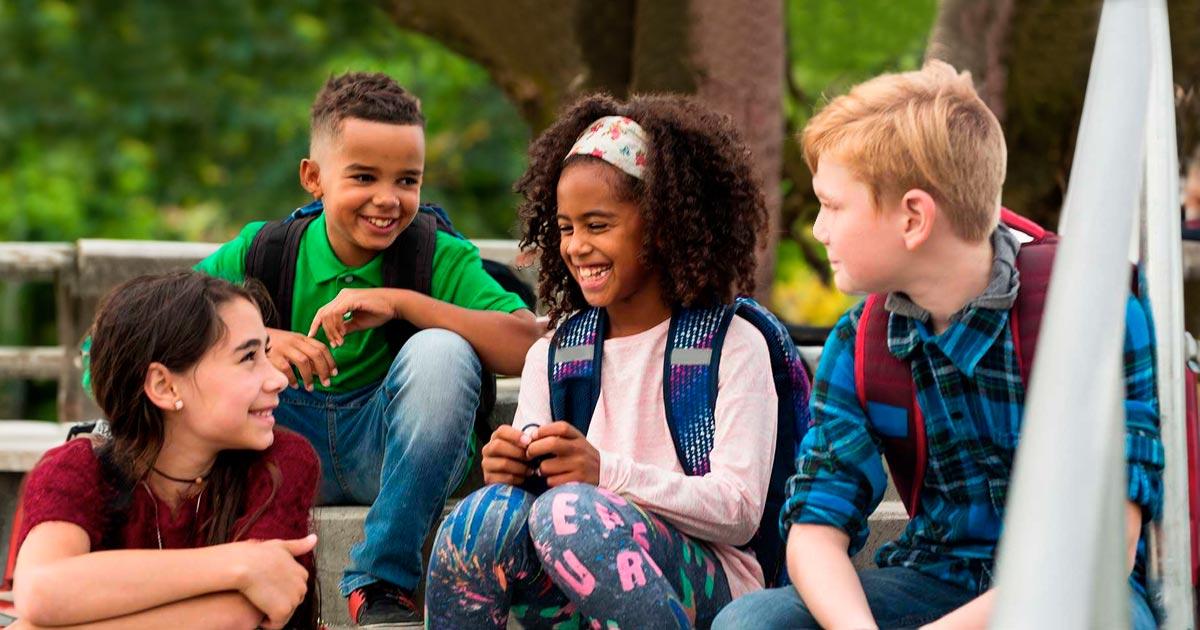Enhancing Peer Relations – Building Strong Connections for Social Growth

Children with positive peer relationships experience numerous benefits to their overall growth and well-being. These relationships serve as a platform for learning important social skills, such as effective communication, problem-solving, and cooperation. In addition, healthy relationships with one’s peers are beneficial to the development of children’s emotional resilience as they learn to negotiate a variety of social contexts and resolve problems.
With the advent of digital technology, children are exposed to a wide array of digital platforms, social media, and online communities from a very early age. While these advancements bring undeniable benefits, such as access to information and global connectivity, they also present unprecedented challenges for parents. Balancing the use of digital devices and fostering authentic peer relationships has become an integral part of the new-age parenting journey.
As a parent, you significantly influence your child’s social development and can actively support cultivating positive peer relationships. Understanding the importance of these connections and implementing strategies to foster them provides your child with valuable tools for success in their social interactions.
In this article, we will explore ten effective strategies to help your child improve their peer relationships and thrive in their social interactions.
1. Encourage Communication & Active Listening
Communication that works well is essential to the maintenance of any healthy relationship. Your job as a parent is to educate your child on the value of attentive listening while encouraging them to express their opinions and feelings effectively. Listening attentively to their peers, your child can better understand their perspectives, establish empathy, and build trust.
2. Teach Empathy & Kindness
It’s important to have empathy if you want to have healthy interactions with your peers. Help your child understand the feelings and experiences of others by encouraging them to put themselves in someone else’s shoes. Promote acts of kindness, such as sharing, helping, and offering support, as these actions foster positive connections and build strong friendships.
3. Foster Positive Self-Esteem
A healthy self-esteem child is likelier to engage in positive peer relationships. Encourage your child’s strengths, interests, and achievements to boost their confidence. What can you do to improve your peer relationships? Nurturing their self-worth, you empower them to form authentic connections based on mutual respect and acceptance.
4. Promote Social Skills Development
Social skills are essential for successful interactions with peers. Help your child develop these skills by teaching them effective ways to initiate conversations, resolve conflicts, and cooperate with others. Role-playing scenarios and offering guidance on appropriate social behaviors can enhance your child’s ability to navigate social situations confidently.
5. Facilitate Playdates & Group Activities
Organizing playdates or group activities provides opportunities for your child to interact with their peers in a relaxed and enjoyable environment. Encourage cooperative play, sharing, and turn-taking during these gatherings, fostering teamwork and collaboration. Regular social interactions can strengthen bonds and create a positive peer support network.
6. Foster Inclusion & Diversity
Teach your child the importance of inclusivity and valuing diversity. Inspire children to value the individuality of their classmates and appreciate the variations among them. By fostering an inclusive mindset, your child will develop acceptance, tolerance, and respect for others, laying the foundation for meaningful and positive peer relationships.
7. Model Healthy Relationships
Children learn by observing their parents and caregivers. Model healthy relationships in your interactions with family, friends, and others. Demonstrate effective communication, problem-solving, and conflict-resolution skills. Your child will internalize and apply these behaviors when building positive peer relationships.
8. Provide a Supportive Environment
Create a supportive environment at home that encourages open communication and emotional expression. Give your child a secure environment to discuss their experiences, worries, and feelings. You help your child develop the resilience and confidence needed for healthy peer relations by providing unconditional love, understanding, and guidance.
9. Address Bullying & Conflict
Bullying and conflicts can significantly impact a child’s peer relationships. Teach your child to recognize and address bullying behaviors as bystanders and victims. If assistance is required, encourage them to get it from a reliable adult. Addressing conflicts and fostering a culture of kindness and respect empowers your child to navigate challenging situations effectively.
10. Cultivate Positive Online Behavior
In today’s digital age, online interactions play a significant role in peer relationships. To teach your child how to behave responsibly online, you should educate them on topics such as proper language, respect for privacy, and the potential consequences of engaging in cyberbullying. Encourage them to use technology for positive communication, learning, and collaboration.
Guide Your Child in Positive Peer Relationships!
Positive peer relationships are essential for children’s overall social and emotional development. These relationships provide a support system where children can learn, grow, and navigate the complexities of social interactions. By implementing the ten strategies outlined in this article, you can actively contribute to your child’s ability to build and maintain healthy connections with their peers.
In today’s digital age, digital citizenship is an important aspect of peer relations. Teaching your child about responsible online behavior, including being respectful, maintaining privacy, and avoiding cyberbullying, equips them with the skills to navigate the online world safely and respectfully. In the face-to-face contacts students have, they should be encouraged to apply the same values and principles to their online relationships.
Your child can thrive in peer relationships with your guidance and support, leading to a happier and more fulfilling social life. By implementing these strategies and consistently nurturing your child’s social development, you provide them with a strong foundation for positive peer relationships that will contribute to their overall well-being.
